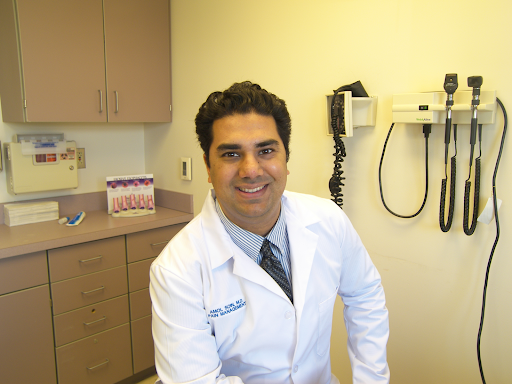The FDA recently granted the pharmaceutical company Soin Therapeutics, based in Dayton, OH, orphan drug status for low dose naltrexone (LDN) to treat complex regional pain syndrome (CRPS).
Soin Therapeutics Develops Low Dose Naltrexone (LDN) to treat Complex Regional Pain Syndrome
Complex Regional Pain Syndrome is a rare orphan disease that causes severe pain. It most often begins in an extremity and is accompanied by extreme swelling, limited range of motion, changes to the skin or bone structure, and debilitating pain.
Soin Therapeutics explains that Orphan diseases are neglected due to the cost associated with developing treatment options for so few patients as it affects less than 200,000 Americans.
Because there is no known cure and a lack of practical treatment options available for CRPS, Dr. Soin, a pain management physician and researcher, began researching chemical compounds to treat the pain rather than masking symptoms using addictive pain medications.
Dr. Soin is now developing low-dose naltrexone to treat complex regional pain syndrome, receiving orphan drug designation from the FDA. He states that obtaining Orphan Status from the FDA is an essential milestone for Soin Therapeutics. “We look forward to running a large-scale clinical trial and eventual FDA approval to help patients suffering from CRPS.”
Soin Therapeutics Plans to Use Low Dose Naltrexone (LDN) to treat symptoms stemming from CRPS.
Naltrexone is a medication known for managing alcohol or opioid addiction by eliminating or reducing the highs and cravings associated with these substances. Anecdotal reports show that Naltrexone relieves symptoms stemming from CRPS at very low doses (approximately 1/10th the dose) of currently approved indications. The unique formulation works on treating the mechanism of action.
According to Dr. Soin, “Low Dose Naltrexone has unique properties to specifically help the disease cascade of CRPS including attenuation of microglial cells involved in pain transmission, reduction of proinflammatory cytokines, antagonism of the Toll-like receptor 4 (TLR4), as well as stimulating the release of endorphins which are the body’s natural pain killers.
This drug seems very well suited to treat several mechanisms of the disease process. All those properties would seemingly be quite helpful in CRPS patients. Best of all, this is a non-addicting and non-sedating drug that could be a new way to treat complex regional pain syndrome.”
In addition to this prescription, Dr. Soin has patented and conducted trials for a new spinal cord stimulation device to treat chronic pain.
Dr. Soin has also patented and conducted trials for a new spinal cord stimulation device to treat chronic pain. The device has been effective for pain associated with nerves and can treat other problems related to nerves.
Back pain and nerve pain are triggered by nerve chemical signals that transmit signals from nerve cells to nerve cells and then to the brain. Soin Neuroscience explains that the spinal cord stimulation device was discovered to interfere or block these signals.
The device is effective for pain associated with nerves. “We also realized that we can treat a lot of things like constipation and urinary incontinence, anything where the nerve is involved in the process,” Dr. Soin explains. “Spinal cord stimulation has been around for a long time, but we have a unique interface and algorithm that communicates with the nerve more like the way nerve cells communicate with each other.”
The spinal cord stimulation medical device indicates the company’s progress towards meeting the needs of those suffering from chronic pain by offering different modalities. The device is investigational and not FDA approved for use in humans, and patients who have trialed the system are part of an approved early pilot study.
The device is not available for commercial use. Given that only initial testing has been completed, Soin Neuroscience cannot claim the efficacy of the device as further testing is needed. As a result, there are no guarantees or claims of effectiveness, and further testing is required.
Email Amol Soin at drsoin@soinneuroscience.com
